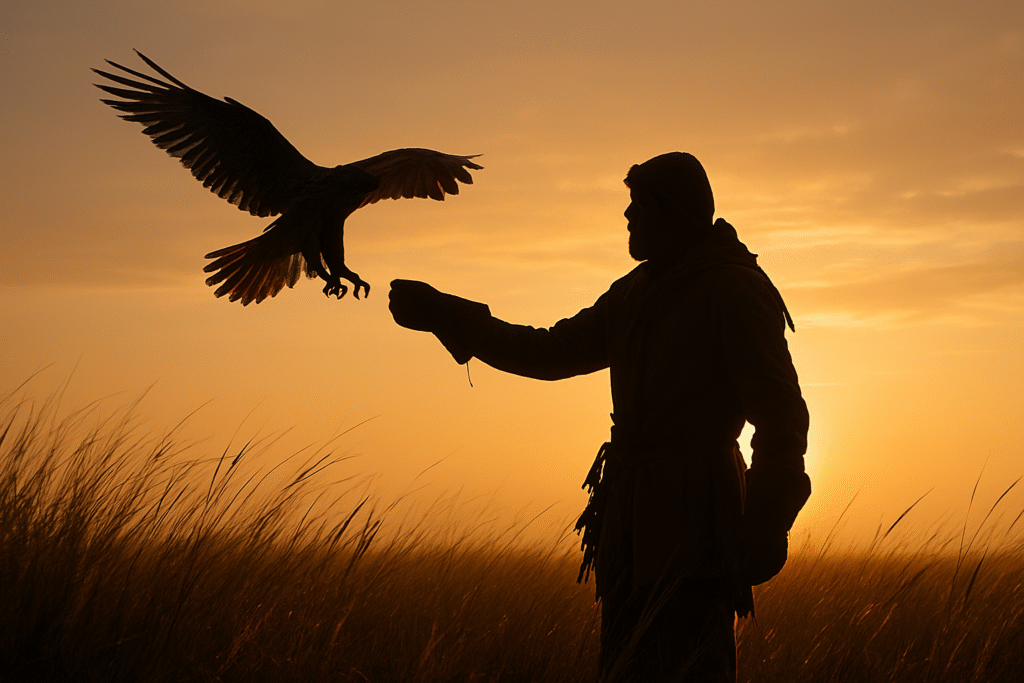You see, an ancient art now drives urgent species recovery and public health. You also see culture and science join hands for impact. You get clear proof in Wales, the Gulf, and Canada. You gain a roadmap for action that fits real life and real stakes.
In India, a vulture crash linked to about 500,000 human deaths over five years set a stark lesson for public health. You find the core reason in carcass removal that halts disease spread. Data from the 1990s set the frame for policy and field action. You now face similar risk signs across Africa and Asia.
Why do vultures matter to human health?
You rely on nature’s cleanup crew for fast carcass removal. You gain lower pathogen loads and fewer feral dog surges. Evidence from India ties vulture loss to large mortality figures over a five‑year span. You get a direct link between scavenger loss and disease pressure.
IUCN lists the African hooded vulture as critically endangered. You see fewer than 150,000 in the wild and about 131,000 mature adults in 2021. You also see about 200 in human care. Data signals rapid decline across core ranges.
Where do Wales’ efforts fit into global vulture recovery?
Falconry Experience Wales in Newtown, Powys, sets up a pair called Togo and Hope. You see a plan for one chick per cycle. You get a safety‑net model that experts at the Hawk Conservancy Trust and the University of Reading endorse. You also see support from the Horstmann Trust under the European Endangered Species Programme.
You see parallel focus on the white‑backed vulture. Global numbers sit near 270,000, with a South Africa subset a little above 7,000. You get confirmation that both hooded and white‑backed face the highest risk. Field teams add GPS tags to four hooded vultures in West Africa for up to five years.
Threat drivers include poison from poacher concealment and demand for body parts in traditional medicine. You also see habitat pressure across key ranges. A poison response kit plan adds a fast first‑aid tier. You get practical tools that can save birds on site.
What do global events say about falconry status?
Kuwait hosts a three‑day falcon showcase from 28 to 30 August 2025 in Hawalli Governorate. You see global makers and experts meet under one roof. Saudi Arabia hosts a global falcon auction in August 2025 in Riyadh under the Saudi Falcons Club. You get a “Falconer of the Future” stand that spotlights farms and tech.
King Abdulaziz Falconry Festival in December 2024 draws over 1,000 falconers from nine countries. Prize money exceeds 9.6 million dollars. You see scale and reach that lift skills and welfare. You also see heritage that feeds formal conservation goals.
How do raptors deliver practical solutions in cities?
Royal Canadian Falconry works at the Rosewarne landfill in Muskoka, Ontario. You see Harris hawks, peregrine falcons, and gyrfalcons move gull flocks away from high‑risk zones. You gain lower strike risk and cleaner work areas. City teams get a humane, high‑compliance method that fits public safety rules.
Data from sites of that type show fewer bird incidents once raptors enter airspace. You also see faster flock movement and fewer returns. You gain a repeatable protocol for waste sites and airports. You get a model that pairs craft skill with clear metrics.
What risks shadow falconry and how do leaders respond?

Reports in 2021 show Pakistan as a hub in the illegal falcon trade for Gulf buyers. You see pressure on wild stocks and on source communities. You also see customs and wildlife units add seizures and stricter permits. Cross‑border task forces set up shared watchlists.
You can back legal supply and welfare audits at events and auctions. You also can ask vendors for origin proof and vet records. You gain leverage as a buyer and as a fan. You set a norm that rewards high‑bar ethics.
What actions can you take today?
You can support Welsh safety‑net work for hooded and white‑backed vultures. Donations help GPS data, vet care, and poison kit stock. You can follow IUCN updates for status shifts. You can also share verified data across your networks.
You can visit events in Kuwait or Riyadh to meet breeders and gear makers. You gain exposure to top standards and to new tech. You can contact Royal Canadian Falconry‑type firms for landfill or airport risk plans. Your city can adopt a proven raptor protocol.
You now hold the thread that ties heritage to recovery. You can lift species that guard human health. You can act today and see the impact in field reports next season. What step feels right for you now?



